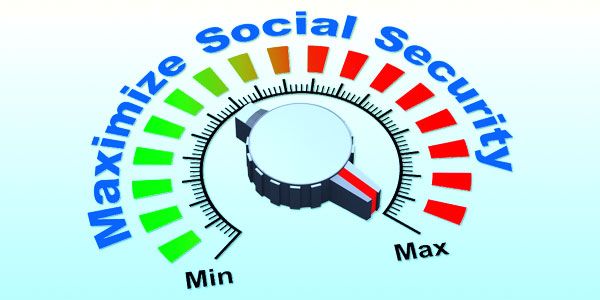You begin to think about retirement payouts rather than contributions as you get older. "What is the optimal age to start receiving Social Security benefits?" is one of the most common inquiries among near-retirees.
Most people take advantage of the benefits straight away, but this isn't always the most excellent option. Let's peek over how Social Security functions and what you should know about it when considering when to retire.
1) Under what circumstances does it make sense to claim Social Security at the earliest age?
Depending on your full retirement age (FRA), you can begin collecting benefits as early as age 62 or as late as age 70. Your monthly benefit amount is influenced by your birth year and the age you start receiving benefits.
If you’re suffering from long-term illness, the additional cash you receive from Social Security benefits might help you to sustain. So, you might want to claim benefits sooner rather than later. Unfortunately, if you believe you may not be gifted with a long retirement, you may come out ahead over your lifetime.
Early Social Security benefits may be beneficial if you need additional cash flow in your early retirement years and want to raise your cash flow now. Sure, your payout will be lower than if you waited. However, if enjoying your retirement when you’re at your healthiest is more important than receiving a higher Social Security payment later, it’s good to start early.
Your benefit will increase by 8% each year after you achieve full retirement age, up to 70. However, if you’re a wise investor, you might want to receive those rewards sooner rather than later. You could take your Social Security payments early, put the money in the stock market, and beat that 8% yearly return.
People who are reaching their retirement are mainly worried about Social Security. But, they are unlikely to be affected much. Still, if you are too worried about losing your Social Security payments, it will be wise to file sooner or at full retirement age rather than wait for a higher amount.
2) Under what circumstances does it NOT make sense to claim Social Security at the earliest age?
Your monthly payment will be longer if you wait after turning 62 (up to 70). However, deferring benefits does not always imply that you will be better off in the long run.
Other considerations are your estimated life expectancy and if you (or your spouse) want to file for spousal benefits. You should also think about the tax, investment, and health-care ramifications.
If you think you’ll live longer than the average person, you might be better off waiting to receive benefits. If not, you should apply for help as soon as eligible.
Spouses who did not work or did not earn enough credits to enroll for Social Security on their own can begin collecting benefits at the age of 62.
If you take your spousal benefit before meeting your FRA, it will be reduced, precisely like applying for help on your record.
Your spousal benefit is limited to half of what your spouse is entitled to at their FRA. The maximum spousal benefit will be half of what your spouse is eligible for at their FRA.
If you return to work, even part-time, before reaching your FRA, your Social Security benefits may be lowered temporarily. In 2021, the cut is $1 for each and every $2 of earned income beyond $18,960 ($19,560 in 2022). Until you become entirely eligible, your benefits will be lowered by $1 for every $3 in income exceeding $50,520 in 2021 ($51,960 in 2022) during the year you meet your FRA. If you claim early, invest in the stock market, and get an average annual return of 8%, you will almost certainly come out ahead.
Your health insurance coverage may also influence when you file for Social Security benefits. Do you own a health savings account (HSA) that you’d like to keep contributing to?
If that’s the case, keep in mind that if you’re 65 or older, getting Social Security payments requires you to enroll in Medicare Part A, and once you do, you won’t be able to contribute funds to your HSA.
3) Under what circumstances does it make sense to claim Social Security at the latest age?
If you claim Social Security without reaching full retirement age (FRA), your payments will be reduced by 25% to 30%.
But, if you wait until after your FRA to receive benefits, Social Security will give an 8% delayed retirement credit to your final monthly payout for each year you wait, up to age 70.
In Social Security planning, the life expectancy is a considerable factor. According to the most recent numbers from the Centers for Disease Control and Prevention, the average American who lives to be 65 can expect to live for another 19 years.
You’ll have a lot more money to care for your needs as you age if your Social Security payment at 70 is more than 75% higher than your benefit at 62. When claiming Social Security, each individual and couple has different needs.
However, we should seriously consider waiting until we are 70 years old. Even if you’ve previously filed, you might be entitled to a second chance. Up to 12 months after filing, you have to withdraw your application and reapply.
Remember, you only have a one-second chance. If it makes sense for you to do so, you’ll have to repay the Social Security payments you received, and in many situations, that money will come from your IRA or 401(k).
You might be able to withdraw distributions from your tax-deferred funds (IRA, 401(k)) and/or convert to other plans that can provide you with tax-free income, such as life insurance. The federal government does not tax your Social Security benefits subsequently (such as beyond age 70).
If you can’t (or don’t want to) work any longer, you may make a plan now to take that tax-deferred cash (from your IRA, 401(k), and other accounts) as an income stream early in retirement, allowing you to postpone claiming Social Security until you’re 70.
To explore if any of these choices are right for you, speak with a certified financial and tax professional.
4) Under what circumstances does it NOT make sense to claim Social Security at the latest age?
If you retire between 65 and 70, you may be eligible for a “delayed retirement” credit (DRC).
For example, suppose you were born in 1955 and are now 66 and 2 months old. If you began receiving benefits at the age of 68, you would receive an annual credit of 8% multiplied by two (the number of years you waited). This increases your pension by 15% over what you would have earned at age 66. (This does not account for any additional cost-of-living adjustments due to inflation between 1966 and 1968.)
That greater starting point lasts for the length of your retirement and acts as the foundation for inflation-linked increases in the future. While it’s crucial to evaluate your circumstances, it’s not always possible to wait, especially if you’re in poor health or can’t afford to wait. But the advantages of waiting can be substantial. If you choose to wait until after you turn 65, you may still need to enroll in Medicare. If you don’t sign up for Medicare before 65, your coverage may be delayed and cost extra.
5) How can retirement plan fiduciaries better prepare retirement savers to defer claiming social security?
A retirement planner, as a financial expert, should make you aware of the following four points:
First, most financial experts advise retirees to make sure they have enough income to replace roughly 80% of their pre-retirement earnings. This is vital to avoid a significant decline in quality of life, particularly when retirees frequently confront new expenses, such as increased healthcare costs. Social Security was never intended to cover 80% of a person’s salary. It’s designed to replace roughly 40% of your pre-retirement income, with the rest coming from a pension or savings. You’ll have difficulty meeting your basic needs if you don’t have revenue from these other sources.
Second, as Tax contributions fund social Security, you probably won’t get a call from the IRS once you start receiving benefits. However, approximately half of retirees pay some federal taxes on their pensions, which is expected to rise over time. Only “provisional” income (including half of your Social Security benefits, taxable income, and non-taxable income) is considered. However, due to natural wage growth, an increasing number of people will have provisional incomes over the stipulated criteria, and they will all lose some of their benefits to taxes.
The third reason is that many seniors get Medicare premiums deducted directly from their Social Security checks. Healthcare inflation, however, tends to outpace the quarterly Social Security Cost of Living Adjustments (better known as Social Security raises). While there are provisions to keep Medicare premiums from going up faster than the yearly increase in Social Security benefits, there are many years when seniors see little extra money in their checks. It is because increasing Medicare expenses swallow up their whole benefit increase.
Finally, you may not be aware that if you receive Social Security benefits before reaching full retirement age, you will receive a lower benefit amount than the regular benefit amount. You could be in serious trouble if you don’t know when your FRA is or don’t realize that claiming early can limit your benefit by up to 30%. To avoid a significant drop in Social Security income, you may have to work longer or accept considerably smaller monthly checks than you’ll ever hope for.









